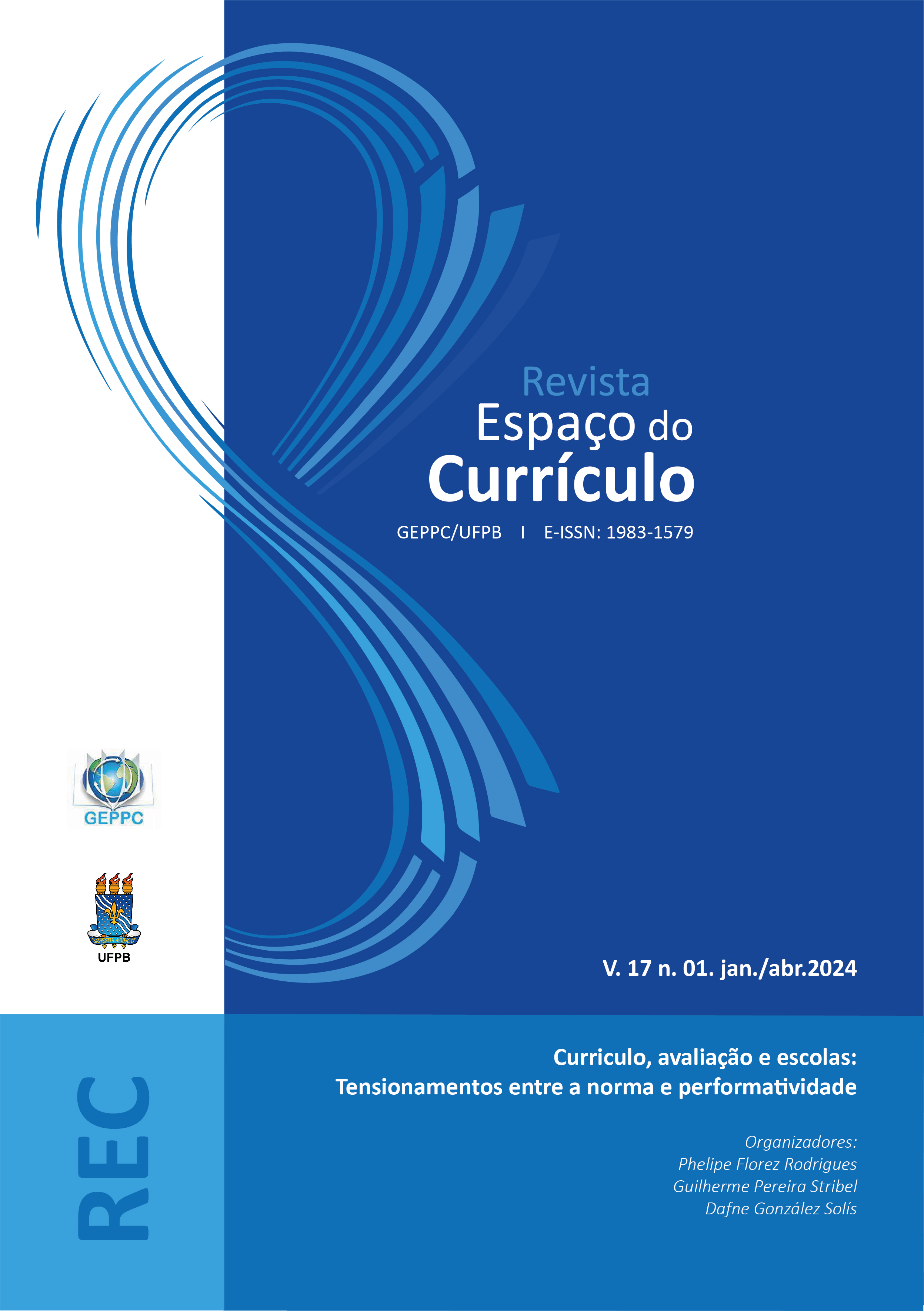HIDDEN CURRICULUM
aspects of educational experience not declared in the official and formal curriculum of the school
DOI:
https://doi.org/10.15687/rec.v17i1.66446Keywords:
Education, Sociology, Educational Policies, School CurriculaAbstract
This article focuses on the concept of the Hidden Curriculum, based on Critical Theory and the Sociology of the Curriculum. This analysis is fundamental to the task of understanding the curriculum's mission in producing personalities. However, by attributing the center of this process to those experiences and objectives that are not explicit, the concept also contributes to absolving the formal curriculum of its responsibility in the formation of social subjects. It is therefore necessary to examine the minutiae of cultural and social reproduction, which is evident in the combination of one and the other (formal and hidden curriculum). The discussion is based on the works Documentos de Identidade: uma introdução às teorias curriculares, by Tomaz Tadeu da Silva (2016) and Sociologia e teoria crítica do currículo: uma introdução by Antônio Flávio Barbosa Moreira and Tomaz Tadeu da Silva (2001). The aim was to contribute to an understanding of curriculum organization and its links with broad economic and social formations, with the aim of understanding the role of schools in selecting, preserving, transmitting and distributing culture, governed by ideological norms and values.
Downloads
Metrics
References
APPLE, Michael Whitman. Conhecimento oficial - a educação democrática numa era conservadora. Petrópolis: Editora Vozes, 1999.
APPLE, Michael; KING, Nancy. Que enseñan las escuelas? In.: GIMENO SACRISTÁN, José; PÉREZ GOMEZ, Angel. La enseñanza: su teoria y su práctica. Madrid: Akal, 1989, pp. 37-53
BRASIL. Ministério da Educação. A etapa do Ensino Médio. In: BRASIL. Ministério da Educação. Base Nacional Comum Curricular: educação é a base. Brasília: MEC, [2018]. p. 472-473. Disponibilidade em: http://basenacionalcomum.mec.gov.br/images/BNCC_EI_EF_110518_versaofinal_site.pdf. Acesso em: 02 mar. 2022.
BRASIL. Constituição da República Federativa do Brasil de 1988. Brasília: Senado Federal, 1988. Disponibilidade em: http://www.planalto.gov.br/ccivil_03/constituicao/constituicao.htm. Acesso em: 01 mar. 2022.
CAMPOS, Rafael Garcia, SARAIVA, Mateus. O Projeto de Ensino Médio à Luz de Paulo Freire: a política como restrição da diversidade e da inclusão. Cenas Educacionais, 5, e13068, 2022. Recuperado de https://revistas.uneb.br/index.php/cenaseducacionais/article/view/13068
ELIAS, Norbert. A sociedade dos indivíduos. Rio de Janeiro: Jorge Zahar, 1994.
GANDIN, Luis Armando; LIMA, Iana Gomes de. (2016). A perspectiva de Michael Apple para os estudos das políticas educacionais. Educação e Pesquisa, 42(3), 651-664. https://doi.org/10.1590/S1517-9702201609143447. DOI: https://doi.org/10.1590/S1517-9702201609143447
KENNET, John. The sociology of Pierre Bourdieu, Educational Review 25, pp. 237- 249, June 1978. DOI: https://doi.org/10.1080/0013191730250308
KLIEBARD, Herbert Martin. Structure of the disciplines as an educational slogan.Teachers College Record, v .66, n. 7, p. 598-603, 1974. DOI: https://doi.org/10.1177/016146816506600706
LIMA, Licinio. A “escola” como categoria na pesquisa em educação. In.: BONIN, Clarice et. al. Trajetórias e processos de ensinar e aprender: políticas e tecnologias. Porto Alegre: Editora da PUCRS, p. 331-328, 2008.
LIMA, Telma Cristiane Sasso; MIOTO, Regina Célia Tamaso. Procedimentos metodológicos na construção do conhecimento científico: a pesquisa bibliográfica. Rev. Katál, Florianópolis, v. 10, ed. esp, p. 37-45, 2007. DOI: https://doi.org/10.1590/S1414-49802007000300004
MATLOCK, Jann. Masquerading women, pathologized men: cross-dressing, fetishism. and the theory of perversion. 1882- 1935. In Emily Apter e William Pietz (orgs.). Fetishism os cultural discoune. Ithaca: Cornell University Press, 1993, p.31-61.
MARCUSE, Herbert. A ideologia da sociedade industrial - O homem unidimensional. Rio de Janeiro: Zahar, 1982.
MOREIRA, Antônio Flávio Barbosa; SILVA, Tomaz Tadeu da. Sociologia e teoria crítica do currículo: uma introdução. In: Antônio F. B. e Tomaz T. da Silva (orgs.) Currículo, Sociedade e Cultura. São Paulo: Cortez, 1999: p.7-37.
MOREIRA, Antônio Flávio Barbosa; SILVA, Tomaz Tadeu da. (orgs.) Currículo, cultura e sociedade. São Paulo: Cortez, 2001.
PIETZ, William. The problem of the fetish, Illa. Res, n. 16, 1988, p. 105-1 23. DOI: https://doi.org/10.1086/RESv16n1ms20166805
SILVA, Tomaz Tadeu da. Documentos de Identidade: uma introdução às teorias do currículo. 3ª ed; Belo Horizonte: Autêntica Editora, 2016: p. 11-27.
SILVA, Tomaz Tadeu. O currículo como fetiche: a poética e a política do texto curricular. Belo Horizonte: Autêntica. 2003.
SILVA, Tomaz Tadeu da. Currículo, conhecimento e Democracia. Cadernos de Pesquisas, n. 73, 1990, p. 59-66.
TAYLOR, Frederick Winslow. Princípios de administração científica. São Paulo: Atlas, 1970.
Downloads
Published
How to Cite
Issue
Section
License
Copyright (c) 2023 Curriculum Space Journal

This work is licensed under a Creative Commons Attribution 4.0 International License.
By submitting an article to Curriculum Space Journal (CSJ) and having it approved, the authors agree to assign, without remuneration, the following rights to Curriculum Space Journal: first publication rights and permission for CSJ to redistribute this article. article and its metadata to the indexing and reference services that its editors deem appropriate.
















